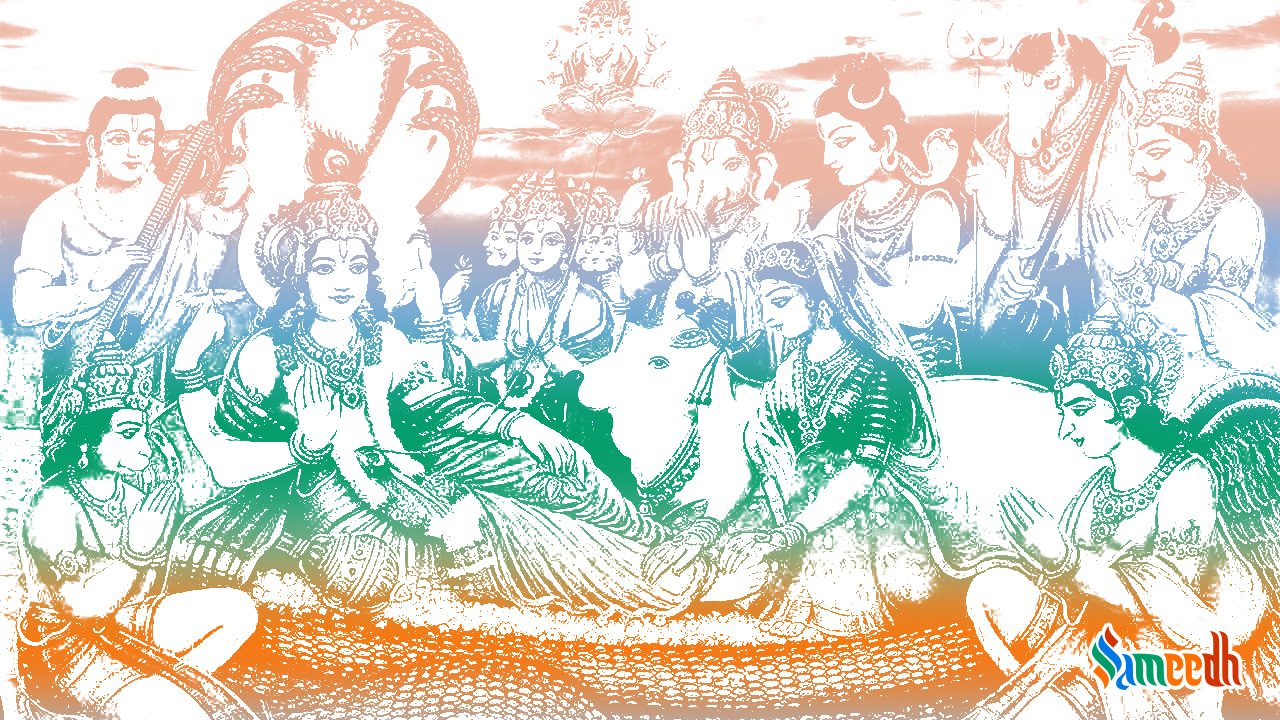Vaikunth Ekadashi is a significant day, honouring Bhagwan Vishnu. It is believed that those who fast on this day, are forgiven for their past sins and their souls attain Vaikunth Dham after they leave this mortal world.

Vaikunth Ekadashi is a significant day, honouring Bhagwan Vishnu. This day falls on the Shukla Paksha Ekadashi during the Dhanur/Margazhi month, as per the Hindu calendar.
Vaikunth Ekadashi is an auspicious day for Hindus, primarily for the Vaishnavs, who are ardent follower of Bhagwan Vishnu. The Vaishnav community believes that on this unique day, the ‘Vaikunth Dwar’ is opened. Everyone in Vaikuntha, the abode of Bhagwan Narayana becomes Narayan Himself, the Supreme Consciousness that pervades all of Creation. According to Srimad Bhagawatam, it would become difficult to distinguish who is Bhagwan and who is sevak, in Vaikunth dham.
What is Vaikunth?
Vaikunth is the abode of Bhagwan Vishnu. It is said that this is the place where there is no lack, or shortage; there is only abundance. Bhagwan Vishnu dwells here with His wife, Mata Laxmi.
The Vaikunth dham is situated 26,200,000 yojans (209,600,000 miles), Above Satyalok. According to most of the existing Purans and Vaishnav traditions,Vaikunth is believed to be located in the direction of the Makar Rashi or the constellation of Capricorn.
What is the significance of Vaikunth Ekadashi?
Padma Puran mentions the significance of Vaikunth Ekadashi. As per the story, once upon a time, the Gods were unable to face the terror of a rakshas named Muran, and they sought help from Bhagwan Vishnu. Bhagwan Vishnu and rakshas Muran got occupied in a combat. Later, Bhagwan Vishnu retired to a cave in Badarikashrama in order to build a new weapon to fight rakshas Muran. When Muran attempted to assassinate BhagwanVishnu when he was sleeping, Bhagwan Vishnu summoned a feminine power who burned Muran with her eyes.
Bhagwan Vishnu was so pleased with her powers that he gave her the name ‘Ekadashi’ (the eleventh lunar day in the Vedic month) and asked her for a boon. However, Ekadashi prayed to Bhagwan Vishnu that those who fasted on that day be forgiven for their past sins. As a result, Bhagwan Vishnu declared that those who fasted on Ekadashi would attain Vaikunth.
The scientific reason behind fasting on Ekadashi
The waves are higher on a Full Moon Day. Water makes up over 60% of our bodies and, like the ocean, it has a saline content. As a result, the Moon has an effect on the body, and whatever it affects the body, it also affects the mind. That is why our forefathers advised fasting on Ekadashi, because toxins in the body are eliminated when the stomach is kept empty. The act of fasting has a cleansing impact on the body. So if we fast three days before the Full Moon, we won’t have any troubles on the Full Moon day. It is not required to fast on every Ekadashi, but fasting for at least two to three Ekadashi in a year is beneficial.
In Kerala, Vaikunth Ekadashi is known as ‘Swargavathil Ekadashi’. Vaikunth Ekadashi, also known as ‘Mukkoti Ekadashi’ in the southern parts of India, falls in the Tamil calendar month of ‘Margazhi.’ Vaikunth Ekadashi is celebrated with great passion and excitement by Hindu devotees all across the country. Special prayers, yagnas, sermons, and rituals are performed at Bhagwan Vishnu temples around the world on this auspicious day. The Mahalakshmi Temple at Gubbi, Rajagopalaswamy Temple at Mannargudi, Sri Ranganathaswamy Temple at Srirangam, and Tirumala Venkateswara Temple at Tirupati are all well-known in India for their festivals. The celebrations are lavish, especially in temples dedicated to Bhagwan Vishnu in South India.
